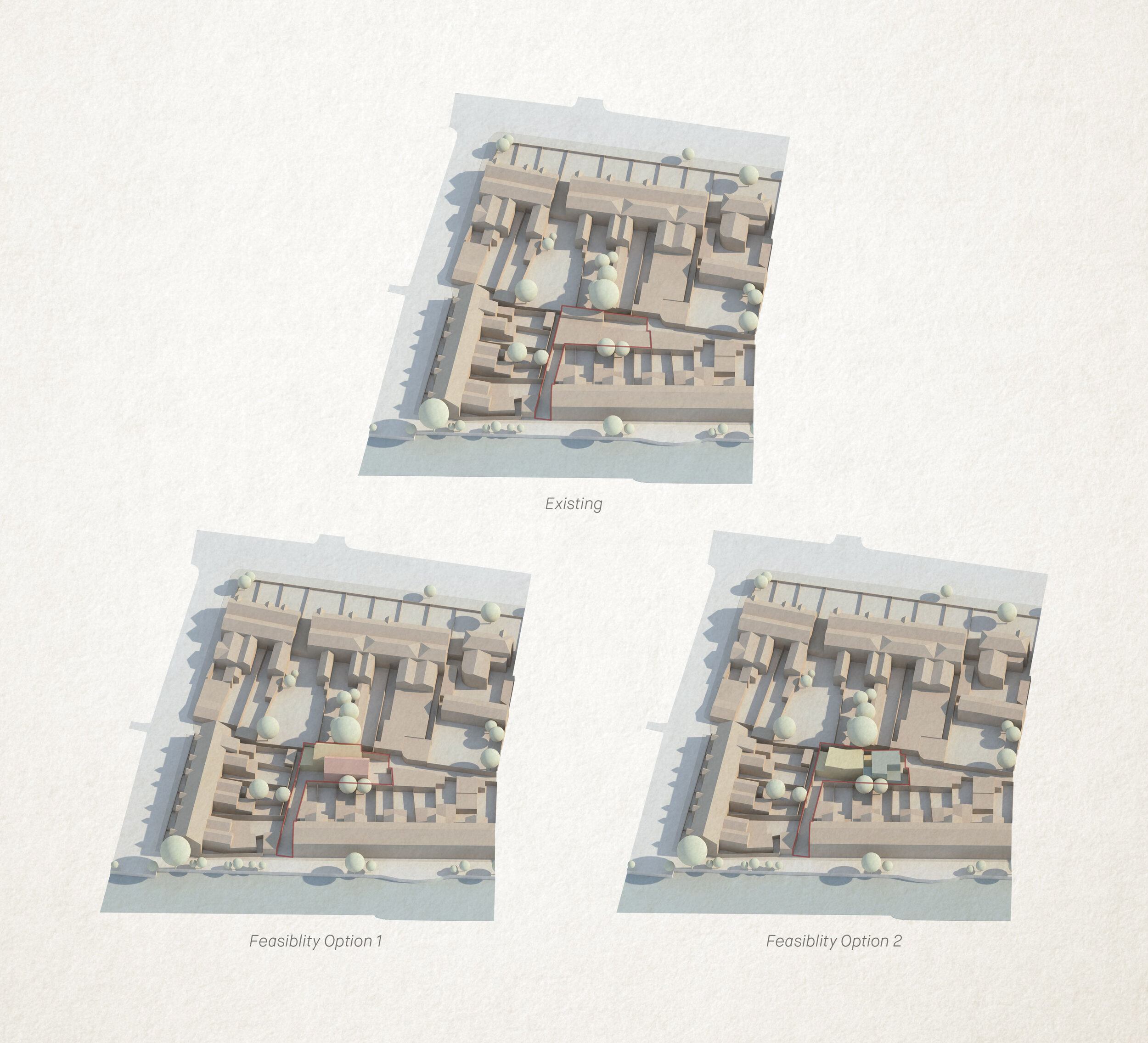What is a Feasibility Study?
A Feasibility Study is undertaken before beginning any design work on a project. Its sole purpose is to figure out two overarching questions: What is possible & is it viable? They are often relied on when there is some doubt or controversy about aspects of a project or in other instances where a client is seeking support from funders. This sees them used on a broad range of project types and sizes - large and small. In this sense a Feasibility Study can be an extremely valuable tool for client’s in deciding whether or not to commission a design, how to go about it (if they do) and what to be aware of. By its very nature a Feasibility Study carries no commitment for a client beyond its completion, it is a stand-alone piece of work with a pre-agreed cost and timescale.
What information does the study contain?
There’s no set format for this study as it should be tailored to the outcomes sought by a client. In most cases we typically consider (or help to establish) a project’s brief, the opportunities & constraints of the site/building, determine an appropriate budget and providing initial design options. More complex studies can focus on aspects in more detail such as statutory constraints like planning permission, site investigation, detailed costs or a client’s particular operational needs. The idea is that this information is collated and presented in a clear format which can be readily shared and used.
Who prepares it?
Feasibility studies for building projects are usually prepared by an architect and depending on the level of information required can sometimes include contributions from other disciplines with the necessary expertise. For example, a quantity surveyor has a key role in estimating building costs. For larger projects other professionals might carry out their own specialist studies which contribute to the overall study. The architect’s role will usually involve coordinating these other disciplines and incorporating their information into the final report.
How much does it cost & how long does it take?
Unfortunately, there isn’t an easy answer to this as the complexity of the study will largely dictate its timescale and cost. There are also considerations such as what information a client already has available – for instance they may have drawings of their existing site or building which can save time for an architect. Feasibility Studies needn’t be expensive with simpler ones starting at under €1k - we suggest talking through your goals with the architect in order to tailor the time and cost to suit you.
What is the benefit of doing a study first?
Understanding your options and the viability of a project at the very earliest stage allows clients to make informed decisions on if and how to move a project forward. By identifying constraints at the outset it gives the best opportunity to address and overcome them which can avoid a huge amount of wasted time and money down the line. It’s worth pointing out that the relative cost of a Feasibility Study is small in the context of most construction projects and as it can potentially save money, many people consider it an essential exercise.
One Client’s Feasibility Journey
Recently a client approached us to do a Feasibility Study for a backland city centre site they were considering purchasing. There were a number of unknowns:
what size of building could it fit
what were the potential planning risks
more generally what else might prove a stumbling block for building here
To add to this the stakes were high due to the cost of the land, so the client was rightly nervous about the purchase.
Through the study, we were able to figure out that it was possible to fit a building of the size the client wanted on the site, but due to awkward access (for vehicles & construction) there would be a great difficulty in getting planning permission and it would be more costly to build on than other sites. The client subsequently decided NOT to go ahead with their purchase and with our help they have since found another site that better suits their needs. This client is now a great believer in the feasibility process.
For the next post we’ll look at Establishing your Brief

